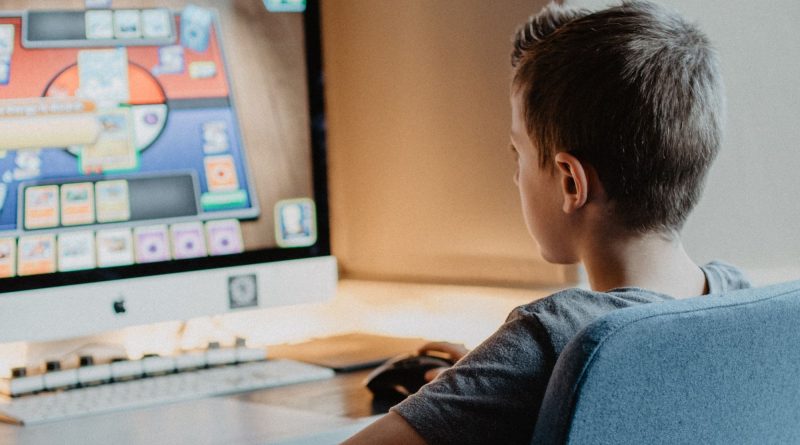Online Gaming Risks and Kids: What to Know and How to Protect Them
It’s no secret that online gaming is hugely popular among kids. But what many parents don’t realize is that there are potential risks associated with letting their kids play games online. With online gaming becoming more and more popular, parents should be concerned about the safety of their children. While online gaming can be a fun and safe activity, there are some risks that they should be aware of. In this article, we will discuss the dangers of online gaming and give parents some tips on how to protect their kids.
Understanding online games
Before we can discuss the risks of online gaming, it’s important to first understand what online games are. Many games are video or computer games that are played over the internet and can be found to gaming platforms such as Playstation, Xbox, Steam and more . They can be played with other people online, or against artificial intelligence. Some popular games include Fortnite, Minecraft, and World of Warcraft. Furthermore, online games can be played on a variety of devices, including phones, tablets, and computers.
Growth of social networking in gaming
As online gaming has become more popular to young people, both paid and free games (freemium games) have increased social networking. In many games, players can chat (voice chat) with each other while they play. This can be a fun way to socialize with other players, but it comes with the spectrum of online stranger danger. There are many online predators who use games to prey on kids. They will pose as other kids in the game and try to start a conversation with them. They may also try to get personal information from them, such as their address or phone number. Online predators can use this information to try to meet up with kids in real life, which can be very dangerous.
What are the risks of online gaming?
Now that we have a better understanding of online gaming, let’s take a look at some of the online gaming risks.
1. Cyberbullying
One of the risks of online video games is cyberbullying. Cyberbullying is when someone uses the internet to bully or harass another person. It can take many forms, such as sending mean messages or emails, posting hurtful comments online, or even spreading rumors online. Cyberbullying can be very harmful to kids and can cause them to feel suicidal or depressed.
2. Exposure to violence
Video gaming can expose to violence. Many games involve killing or injuring other players or characters. This can be very disturbing for kids and can desensitize them to violence. They may also start to believe that violence is a normal part of life.
3. Addiction
Video game addiction is another risk of online gaming. Many kids become so addicted to playing online games that they neglect their schoolwork, friendships, and family relationships. Kids who are addicted to online gaming may also become aggressive or irritable when they’re unable to play.
4. Cybercrime
Another risk of online gaming is cybercrime. Cybercrime is any crime that is committed online, such as online theft, online fraud, or online harassment. Kids who engage in online gaming may be more likely to commit cybercrime.
5. Identity theft
Playing video games can cause identity theft. When kids play online games, they may be required to create an account. This account usually requires them to enter personal information, such as their name, address, and date of birth. If this information falls into the wrong hands, it can be used to steal their identity.
How can parents keep their children safe while gaming online?
There are several things that parents can do to keep their kids safe while they’re playing games online.
1. Teach them about cyberbullying and online predators.
It’s important that parents teach their kids about the dangers of cyberbullying and online predators. They should explain what these terms mean and how to avoid them.
2. Monitor their online activity.
Parents should monitor their kids’ online activity and make sure they’re only playing age-appropriate games. They should also limit the amount of time their kids spend playing online games.
3. Keep their personal information safe.
Parents should make sure their kids only enter their personal information into secure websites. They should also teach their kids not to give out their personal information to anyone online.
4. Talk to them about the risks of online gaming.
Parents should talk to their kids about the risks of online gaming and make sure they understand the dangers. They should also encourage their kids to come to them if they ever feel uncomfortable or unsafe while playing video games.
5. Set rules for online gaming.
Parents should set rules for online gaming, such as no online gaming after 9pm, no online gaming on school nights, or only one hour of online gaming per day. This will help to limit the amount of time kids spend playing online games and decrease the risks associated with it.
Deciding if a game is appropriate for your child
When you’re looking for online games for your kids, it’s important to find ones that are age-appropriate. You can do this by checking the game’s rating. The rating will tell you if the game is appropriate for kids of all ages, or if it’s only suitable for kids over a certain age. As a parent you should always review games that your child plays.
You should also read the game’s description to make sure it’s appropriate for your child. The description will usually include information about the game’s content, including violence, sexual content, and drugs. If you’re not sure if a game is appropriate for your child, you can ask the game’s developer or publisher for more information.
Be aware that online games can change over time. For example, a game that didn’t have any violence when it was first released may be updated to include violence in later versions. It’s also important to be aware of the risks of online gaming before you let your kids play. You should talk to them about the risks and make sure they understand the dangers.
Gaming addiction classified as disorder by WHO
In June of 2018, the World Health Organization (WHO) announced that gaming addiction is now a recognized disorder. This means that people who are addicted to online gaming may soon be able to get help for their addiction.
The new classification was based on a review of existing scientific research. The review found that online gaming can lead to negative consequences, such as problems with school, work, or relationships. It also found that online gaming can lead to mental health problems, such as anxiety and depression.
The WHO’s decision to classify gaming addiction as a disorder will help to raise awareness of the problem. It will also make it easier for people who are addicted to online gaming to get treatment.
If you think your child is addicted to online gaming, there are a few things you can do to help as mentioned above. You can also talk to their doctor about the problem.
Helplines and online resources
There are a number of helplines and online resources that can help you if you’re worried about online gaming.
In the UK, you can contact the NSPCC’s Helpline for Parents on 0808 800 5000.
In the US, contact the National Center for Missing and Exploited Children on 1-800-843-5678.
In Australia, you can contact the Kids Helpline on 1800 55 1800.
For online resources, you can visit the website for the US National Institute on Media and the Family. This website has a number of articles about online gaming and how to protect your kids.
The website for the UK’s National Society for Prevention of Cruelty to Children (NSPCC) also has a number of articles about online gaming and how to protect your kids.



